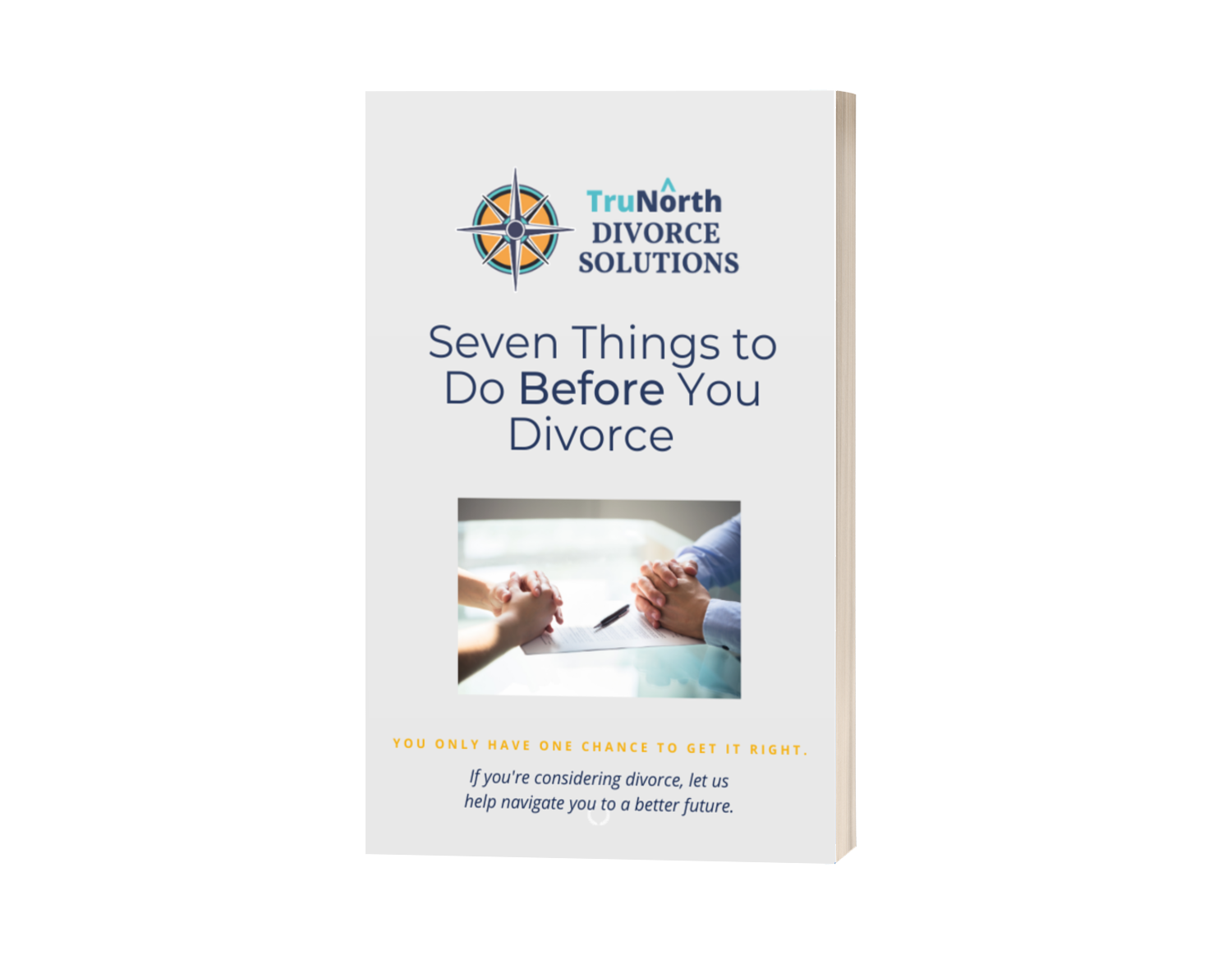SEVEN THINGS TO DO BEFORE YOU DIVORCE
Get Our FREE eBook!

Couples that decide to use mediation for their divorce process often don’t realize that there are three distinctly different styles of mediation. They vary greatly and the style your mediator is trained in will significantly impact the experience you are signing up for. It can be very confusing for the client and you need to make sure you are educated before you evaluate mediators. The three primary styles of mediation are facilitative, evaluative and transformative. There is also a hybrid style that combines aspects of each.
Facilitative Mediation
This is the earliest style of mediation introduced in the 1960’s and 1970’s. The mediator typically creates an atmosphere that encourages each party to have a voice in the process and the mediator asks appropriate questions to elicit the underlying fears, concerns, and interests. The mediator does not typically make recommendations to the couple and encourages them to come to their own agreements on the various issues. Generally, all sessions are held jointly but there may be short meetings with each person individually, as well.
When facilitative mediation began, it was not necessary for the mediator to have extensive knowledge or experience in the area being mediated so many are not experts in any aspect of divorce. That can still be the case today, but more and more there are attorneys, financial experts, and other divorce practitioners who are embracing the practice as well.
Evaluative Mediation
This style was born out of the court system and modeled after the settlement conferences held by judges. The mediator (or mediation team) is trained in one or more specific aspect of divorce, e.g., the law, financial matters, or custody, and will provide expert advice. This style of mediation is often practiced by attorneys using separate meetings with parties and then moving back and forth from one party to another. A true evaluative mediator makes recommendations to each party and directly influences the outcome.
Transformative Mediation
A newer concept in mediation, transformative mediation was introduced in 1994. It is based on “empowerment” of each of the parties and “recognition” by each of the parties of the other parties’ needs, interests, values and points of view. The values are very similar to facilitative mediation. The foundation of transformative mediation is self-determination, the couple’s ability to structure their own solutions and process. The mediator then follows their lead.
Hybrid Mediation
In divorce, most couples want to avoid litigation and an attorney-driven process that can cost tens of thousands of dollars and result in decisions that aren’t the couple’s own. They do, though, want some expert guidance before negotiating the particulars of their Marital Settlement Agreement and Parenting Plan. A combination of aspects from each style of mediation—facilitative, evaluative, and transformative—can produce a divorce that works best for you, your spouse, and children. Learn more about the TruNorth Mediation process here.
Get A free Consultation
484.321.6990
hello@trunorthdivorce.com